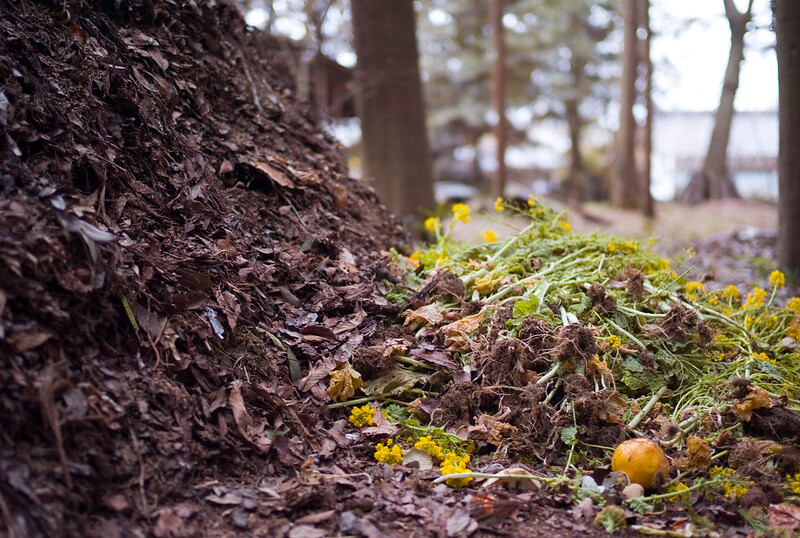By Jennifer Sanborn
Compost still seems like a little miracle to me. I remember the amazement I felt the first time I dug into the pile of scraps and straw that I’d piled up a few months prior and promptly neglected (I’m a very lazy gardener) and found beautiful, rich, dark compost in its place. It had worked! What I previously saw as nothing but garbage was now new nourishment waiting to be spread out on my garden bed.
One of the principles I learned in permaculture training was “create no waste.” What might first appear as trash or misfortune can sometimes be transformed into new food, better soil, or at the very least a good learning lesson. Scraps, clippings and dead leaves become nutrient-rich compost; an unwelcome weed might turn out to be a wild edible or a nitrogen fixer.
Conflict in my human relationships can be like that, too, sometimes. Instead of shutting down and turning away, I try to ask myself if this might be an opportunity to learn and grow, to put some energy into connecting and building a better relationship. It doesn’t feel good, but disagreements and miscommunications are a natural part of being in community with other people. How I respond when these conflicts or mistakes arise can deplete me or make me stronger. But nothing is wasted or a failure if we reflect on it and learn from it.
Some of the work we do in the Regenerative Culture Working Group [often called “Regen” – Ed.] comes close to this kind of “social permaculture”. Regen volunteers host orientation/introduction sessions for new members, support actions, provide resources for activist self-care, and help with conflict resolution when needed. In support of our rebellion against the current system that’s throwing so much away, we look for ways to grow a different kind of culture. We support the folks who are doing the work, take stock of actions and dig back in what’s working, and compost/transform what isn’t. We want what we do to be not only sustainable, but regenerative — making us all even stronger for the seasons ahead. If you’re interested in learning more about Regen, you can read more at https://xrpdx.org/regenerative-culture/.
(Photo credit: Joi Ito)

